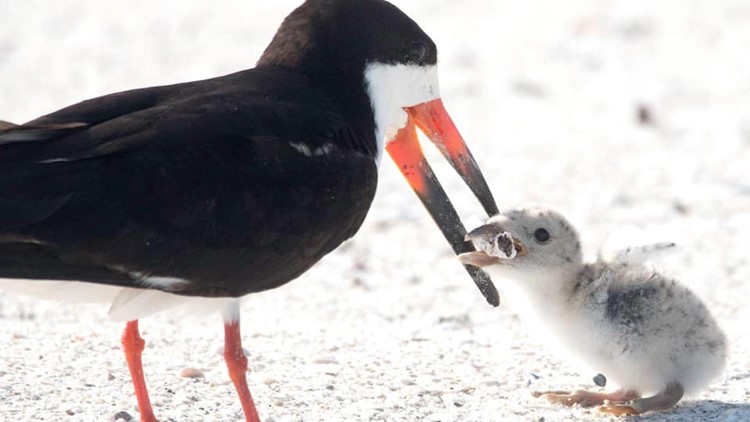Smoking bans are no surprise anymore. They’ve been placed in bars, restaurants, workplaces, and more. But now they are headed to the beach. Cigarette butts, the tiny leftover stubs of a cigarette, often go unnoticed. But they are the number one item found on Florida’s beaches during cleanup initiatives. Now conservation groups are lobbying the legislature and getting the word out about these cigarette leftovers.
Local beach smoking bans
“They [cigarette buts] are little, tiny bundles of plastic that can break down in the environment and enter the water we drink and the food we eat, like shellfish,” said J.P. Brooker, director of Florida Conservation for The Ocean Conservancy. “They can also injure wildlife, including sea turtles, birds and fish.”
The Ocean Conservancy actively lobbied the Florida State Legislature to allow municipalities to implement smoking bans at beaches and parks. Several locales have already begun work to implement the bans, including St. Petersburg. Pinellas County is also working on a ban. State legislators approved an amendment to the Clean Indoor Air Act allowing for the local smoking bans.
Related: St. Pete Takes Number One Spot as Most Dog-Friendly City in America
“Dozens of places are implementing these bans,” Brooker said. “There are 400 municipalities in Florida, and they’ve all got those butts. A lot of people think they are just paper, but they are plastic, and the fibers break down into microplastics that get into the environment.”
St. Petersburg’s city commission voted recently to bank smoking and vaping at public parks and beaches, including:
- St. Pete Pier
- North Shore Beach
- Maximo Beach
- St. Pete Municipal Beach.
St. Pete Beach is not included, since it is its own municipality.
The ordinance was approved unanimously after state leaders allowed for municipalities to pass their own rules. Supporters of the ban say it will help protect wildlife and the environment and is safer for beachgoers who will not be exposed to second-hand smoke.
Alerting people to a serious problem
Patricia DePlasco, executive director of Keep Pinellas Beautiful, recently said that over 80% of litter starts off on land and ends up in Florida’s waterways. That includes thousands of cigarette butts collected each month during beach cleanups.
St. Pete is beginning an educational program to let the public know about the ban, which is expected to go into effect in 2023. The city plans to post signs and get the word out in other ways. Once it begins, those who don’t comply will face a $93 fine.
“It seems like a small issue in light of all the damage people are dealing with from Hurricane Ian,” Brooker said, “but even though this little issue is going on, it is impactful. It is a delicate balance to strike. All Florida beaches need to be cleaned up and protected.”
Related: Pinellas to Adopt Tom Brady Inspired Health and Wellness Curriculum
The Ocean Conservancy is already working with Miami Beach to put up signage on the beach accesses and notify beachgoers of the ordinance and why it is important.
“Last year, during a pretty typical international coastal cleanup, we picked up about 150,000 cigarette butts in one ay across Florida. That is a huge number,” Brooker said. “And again, that is the number one item after food containers and plastic bottle caps found during beach cleanups. All are plastic. And the butts break down into thousands of tiny strands that can accumulate in fish and birds.”
Potential bans across Florida
Proposed bans in Pinellas County and the City of Sarasota still await final approval. The bans will prohibit smoking on beach sand and dunes, but not on adjacent grassy areas or in campgrounds. If approved, the Pinellas ban would include Fort De Soto, Sand Key and Fred Howard Beach.
Panama City Beach is also expected to approve a smoking ban on beaches.
When beaches are rated by various entities, they are rated for their clean sand and clean water, so the bans are expected to be widely accepted by most beach visitors.
The World Health Organization has long warned that the chemicals found in cigarette butts can affect marine life. “This toxic waste ends up on our streets, in our drains and in our water,” the organization stated in a 2017 report. “Research has shown that harmful chemicals leached from discarded butts, which include nicotine, arsenic and heavy metals, can be acutely toxic to aquatic organisms.”
Interested in our Modern Globe weekly newsletter?
By submitting this form, you are consenting to receive marketing emails from: . You can revoke your consent to receive emails at any time by using the SafeUnsubscribe® link, found at the bottom of every email. Emails are serviced by Constant Contact




























